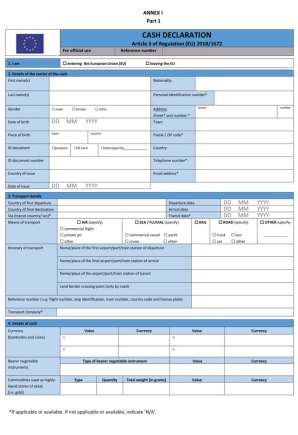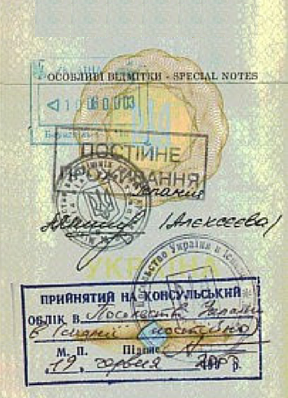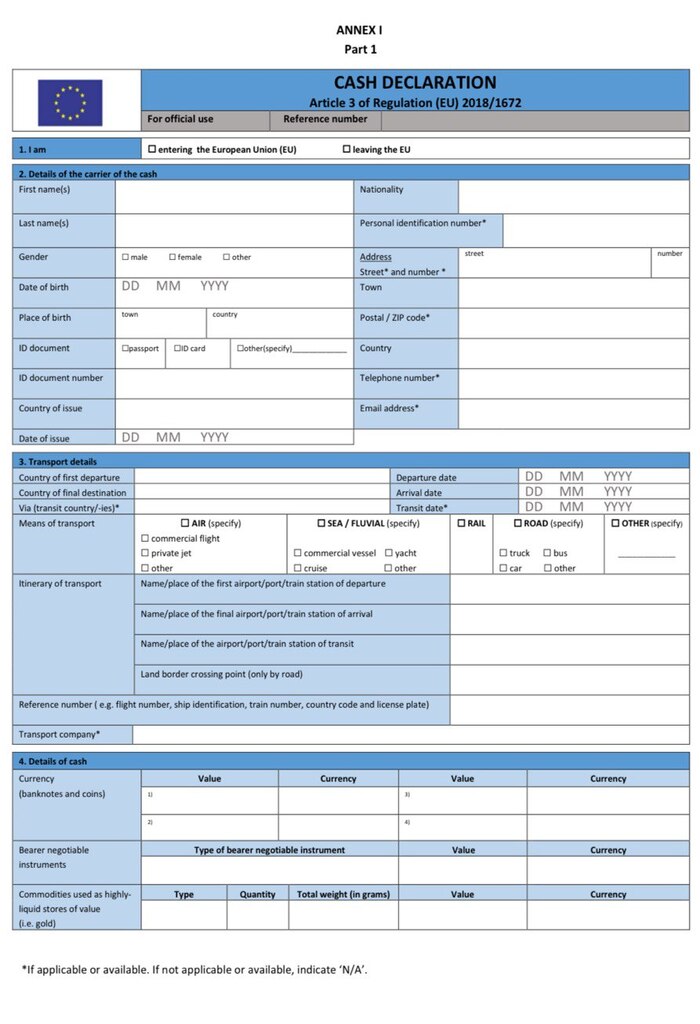How to Declare Cash When Traveling Abroad with the Whole Family?
Cost of services:
Reviews of our Clients
... our work on joint projects assured us of your high level of professionalism
When planning to travel abroad with the entire family, whether for vacation, children’s education, or even relocation, the question often arises: how do you properly transport cash? Many families take significant amounts of money with them to cover housing rent, initial expenses, or investments in a new country.
In such cases, it is very important to understand the customs regulations:
- what limits are set in Ukraine for taking cash abroad
- whether a family is considered a single entity under the law
- whether minor children can carry money on the same basis as adults
- what documents are required to confirm the source of the funds
Incorrect distribution of cash or failure to declare it can lead to unpleasant situations, ranging from partial confiscation of funds to administrative liability. Therefore, preparing for a trip should include not only tickets and documents but also careful financial planning.
In this article, we will explain how to properly declare cash when traveling abroad with the whole family, what specific rules apply to children, and provide practical tips on how to distribute funds safely.
You might also like: Moving Cash Across the Ukrainian Border: Common Issues and How to Avoid Them
Cash Carrying Limits When Traveling Abroad
Ukrainian law sets clear rules for transporting cash across the customs border. The main point to remember is that any individual may take up to 10,000 euros, or the equivalent amount in another currency, out of the country without a written declaration.
If you are carrying U.S. dollars, Swiss francs, or another currency, customs will calculate the equivalent in euros using the official exchange rate of the National Bank of Ukraine (NBU) on the day of departure. If the total equals or exceeds 10,000 euros, you must complete a customs declaration and provide documents confirming the origin of the funds. These may include:
- bank statements showing account transactions
- receipts for cash withdrawals or currency exchanges, if applicable
In summary, the key rule is up to 10,000 euros per person. Any amount above this limit requires additional documentation and declaration.
Is a Family Considered One Entity When Carrying Cash
An important detail that often raises questions among families traveling together is whether the family is treated as a single entity by customs.
The answer is no. Each family member is considered an individual traveler. This means:
- If two adults are traveling together, each can carry up to 10,000 euros without declaring it, making a total of up to 20,000 euros.
- If you are traveling as a family with two children, the total amount that can be taken abroad without a declaration increases to 40,000 euros (up to 10,000 euros per family member).
There is an important condition: the money must be physically divided among all family members. Each person must personally carry their portion when crossing the border. One parent cannot take the full amount and claim that part of it belongs to the children or spouse.
This rule works to the family’s advantage, as it allows them to legally transport larger amounts without additional bureaucracy. However, it also requires careful planning and accurate distribution of the funds.
Can Minors Carry Cash Across the Border
Ukrainian law makes no age-based exceptions when it comes to transporting cash. Children, regardless of age, have the same right to carry currency across the border within the established limit of up to 10,000 euros or the equivalent in another currency without a mandatory written declaration.
Therefore, minors have the same rights as adults:
- if a child carries up to 10,000 euros, no declaration is required
- if the amount equals or exceeds 10,000 euros, standard declaration rules apply
At the same time, the declaration procedure depends on the child’s age:
- Children under 16: if the amount carried exceeds 10,000 euros, the customs declaration must be completed and submitted on behalf of the child by one of the parents or a legal guardian.
- Children aged 16 and older: in this case, the child can submit the declaration independently but must have the necessary documents confirming the origin of the funds, such as bank certificates, statements, or receipts for cash withdrawals or currency exchanges.
Therefore, for customs purposes, a child is considered an individual with their own limit. This allows families to legally transport larger amounts of cash, but it also requires proper documentation and compliance with the procedures when the established threshold is exceeded.
You might also like: How to Confirm the Source of Funds and When It Is Required
Distributing Funds Among Family Members and Crossing the Border: Practical Tips
To avoid misunderstandings at customs and ensure a smooth process, it is important to follow a few key rules:
- Distribute the funds among all family members. For example, if a family of three is carrying 25,000 euros, you can divide it as follows: up to 10,000 euros per adult and 5,000 euros for the child. In this case, no one exceeds the limit, and no declaration is required.
- Each person must physically carry their share. It is not enough to simply state that part of the money “belongs to the child.” The funds must be in their possession when crossing the border.
- Check the National Bank of Ukraine exchange rate in advance if you are carrying U.S. dollars or another currency. Even a slight rate change could push your total over the 10,000-euro equivalent.
- Prepare documents to confirm the source of the funds, especially if you are carrying an amount close to the limit or plan to exceed it. These may include bank statements or receipts for withdrawals and exchanges.
- Consider the rules of your destination country. In addition to Ukrainian regulations, other nations have their own cash import requirements. For example, the European Union also requires a mandatory declaration for amounts starting from 10,000 euros.
Proper distribution of funds will help you avoid unnecessary bureaucracy and ensure a smooth border crossing for the entire family.
Our case: How We Helped Transfer Cash From Ukraine to Germany and Overcome the Challenges of Cash Declaration
Legal Assistance When Traveling Abroad With Cash
At first glance, customs regulations may seem straightforward, but in practice many nuances arise. It is important to know how to properly prepare the documents, prove the origin of funds, and follow the procedures that apply to children or the destination country. A wrong approach can cost a family not only stress but also part of their money.
Our legal team has many years of experience assisting clients with international travel, including the transportation of cash through customs and the opening of bank accounts abroad. We know the details of Ukrainian and foreign legislation, help prepare documents correctly, confirm the origin of funds, and minimize the risk of confiscation or fines.
We offer:
- Pre-departure consultations. We will explain how the rules apply to your situation and calculate the allowed limits for each family member.
- Document review. We will help prepare proof of the origin of funds to avoid any issues during inspection.
- Customs declaration preparation. We will complete and correctly fill out the documents if the amount being transported exceeds the established limit.
Submit a request, and we will help you prepare for safe transportation of cash for the whole family, ensuring proper documentation and minimizing risks.
Our clients















